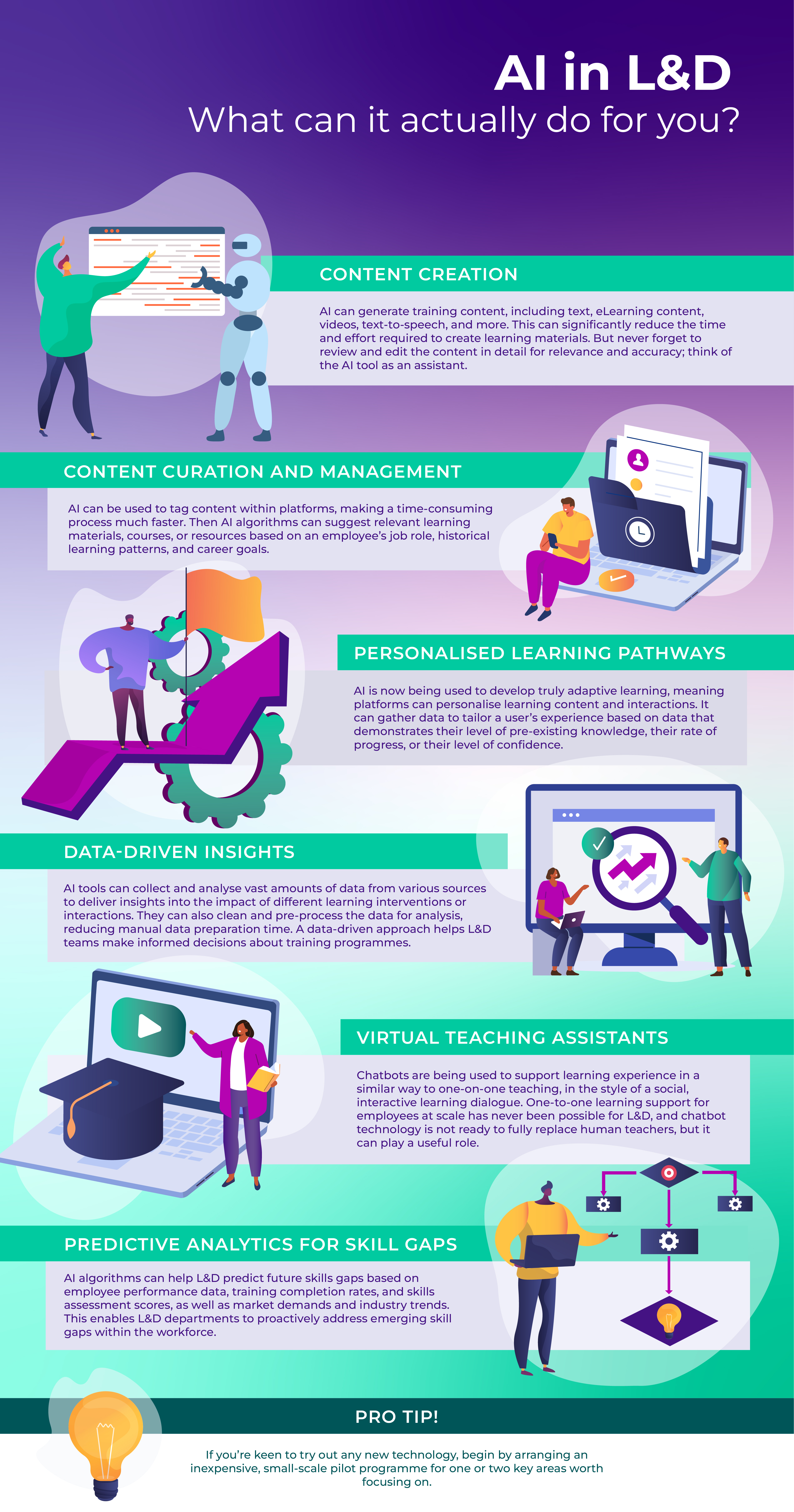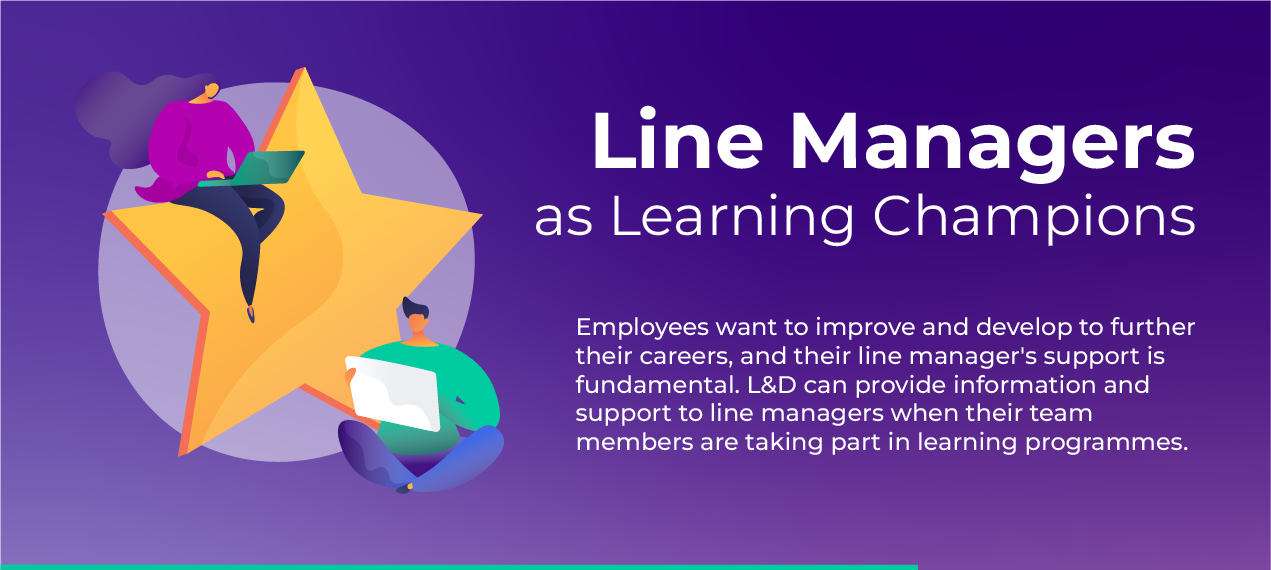‘Twas the night before Christmas in L&D land, there was plenty of stir to do all that was planned... It’s that time of year when there’s a mountain of stuff to get through before Christmas – completions, reports, budgets... You can’t wind down because you’re already getting programmes ready to roll out in the new year. You might, for instance, have a budget to spend in the final quarter and then a budget to plan for next year, too.
New Year Resolutions for L&D
To help keep you feeling energised as you cross this busy calendar threshold, we’ve put together 8 New Year’s resolutions for L&D people. Don’t commit to them all – let’s keep it real – but there could well be one or two that could put some festive cheer into your plans for the coming year!
1. Eat more healthily
Before any habits can change to more healthy ones, we’ve got to do a thorough, honest appraisal of our current behaviours and activities. Be aware of how L&D operates within your organisation. Recognise the barriers – your own, and those of the organisation as a whole – to a more healthy learning culture and find examples of what’s working well. This will help you identify your ‘5 a day’ going forward.
2. Lose excess pounds
Trim the fat! Effective L&D efforts align directly with business goals. What is L&D doing that is not part of a plan to drive performance, culture or business development? Added extras might help you feel good, helpful and like you’re ‘going the extra mile’. But for any L&D department that’s regarded as a pillar of the business, it’s vital to have a laser focus on business requirements – so park those added extras for now! 
3. Save more/spend less
Whether you’re responsible for awarding a budget or meeting one, you’ll want to do more with less. Technology, in particular, can help you do this, with lots of opportunities to create easy, effective and impactful resources. Agile development of learning assets and microlearning can give you better control over costs, giving you what you want, when you want it. Transforming classroom training into blended learning programmes with virtual sessions gives you highly cost-effective and scalable solutions.
4. Learn a new skill
Your role is all about facilitating learning – in all its forms – among your employees. But while you’re encouraging everyone else to upskill and develop, remember that you and your team also need to develop and grow. Lead by example. Identify an area where L&D might improve – it could be around better metrics, more effective communication or how to build a strong business case.
5. Quit smoking
What’s your bad habit in your working life? We all have something – it’s just a case of looking closely enough! Again, take a detoxing look at yourself; be honest in your self-appraisal. Is there a particular behaviour that you tend to repeat because it’s easier or expected of you, but that doesn’t actually help you in your role in the long run? Maybe you’re good at reacting quickly to a knee-jerk request from business leaders, but this behaviour often results in a lack of strategic planning; you then lose the opportunity to show how learning can be a key to business success.
6. Read more
It’s only normal to feel like you might be about to drown in the sea of industry information, statistics, opinions and reports out there. But don’t sink – swim! Staying abreast of what’s happening in the learning industry, and – importantly – reading about what’s working in other industries, will help you bring innovation to your learning solutions and ensure you’re not stuck in the dark ages. The Logicearth monthly ezine is a great place to start, collating interesting statistics and topical articles for readers. Check out our website resources for all things learning related. 
7. Find a new job...
… by transforming your existing one! We can all easily forget that we have the ability to change our role into one that has a higher impact within our organisation. Ask yourself: ‘What is the value that I’d really like to bring to L&D?’ Or: ‘What value do I want my organisation to see L&D bringing to it?’ Set some very clear goals around how you’d like your job to look – don’t miss out on the small stuff (it can lead to big things) – and then put a plan in place to achieve these goals. Check out the Logicearth blog for umpteen ideas on things to change.
8. Spend more time with family and friends
Christmas involves bringing hidden treasures out into the open (Christmas tree and lights; stashed gifts; karaoke at the Christmas party – okay, maybe that last one isn’t to be recommended for everyone!). Keep up that mode in the new year: don’t be invisible to department leads and an ill-informed C-suite. Stand tall and make your presence felt by talking to learning communities and having meaningful conversations about how L&D can truly support and drive business. Keep your finger on the pulse (check out our defib course) of how learning is perceived by communicating up, down and across your organisation, and spread the good news about what L&D can achieve for everyone. Take the spotlight you deserve, and soon you’ll be taking a bow.
Change something
New Year’s resolutions are all about change – doing things differently. Keep it simple – pick one thing from our list that would make the most difference to you or your business – a change you could make to L&D that would have you saying ‘It’s a wonderful life’!









Was this article helpful?